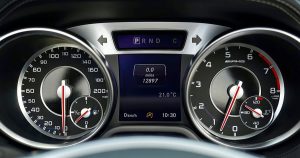 One of the first things a potential car buyer is interested in when buying a new car is how much fuel it requires. Even slight differences in fuel efficiency can result in thousands of dollars of extra spending over the long run, so properly understanding how much a car consumes is essential for making a correct decision. Here’s what you need to know about fuel efficiency.
One of the first things a potential car buyer is interested in when buying a new car is how much fuel it requires. Even slight differences in fuel efficiency can result in thousands of dollars of extra spending over the long run, so properly understanding how much a car consumes is essential for making a correct decision. Here’s what you need to know about fuel efficiency.
What miles per gallon are and how they’re calculated
In other parts of the world, a car’s fuel efficiency is calculated based on how much fuel it needs to cover a certain distance. In the United States it’s measured the other way around, meaning that they calculate the distance a car can run with a certain amount of fuel, typically a gallon.
The first thing you need to know about the miles per gallon figures that the manufacturers release for every new car is that it will never be 100 percent accurate. There are many variables that go into calculating a car’s fuel efficiency and many of them are related to a driver’s style and road conditions. The numbers are fairly accurate, though, and they can be used as a tool for comparing two different vehicle models. It’s also useful to remember that higher fuel consumption results in higher CO2 emissions, which can result in more road tax.
Urban Miles per Gallon
The urban miles per gallon figure is an estimation of how much fuel your car consumes in city traffic. Cars tend to need more fuel on urban roads, mainly because they spend a great amount of energy during acceleration. City roads have traffic jams, intersections, pedestrian crossings, and many more elements that require constant braking and acceleration, resulting in the car using up more fuel. Obviously, highly congested cities result in fewer miles per gallon of fuel.
Extra-Urban Miles per Gallon
Extra-urban fuel consumption refers to the fuel your car consumes on roads outside city limits, such as highways and freeways. The lack of intersections and the lesser chances of traffic jams mean that vehicles typically travel far more than they would on city roads, with the same amount of gasoline. However, this is only valid at certain speeds. Once you pass a certain threshold, which varies depending on the vehicle and its engine, fuel consumption cand actually be higher on open roads than in the city.
How Do You Calculate Your Own MPG?
Your estimated miles per gallon, first of all, depends on where you need to go on a regular basis. If most of your drives will be within city limits, your MPG will probably be close to the manufacturer’s urban MPG estimates. If you regularly travel between towns, you’ll probably consume closer to the estimated extra-urban MPG. Your driving habits and style are also important, so try to avoid driving in rush hour, carrying unnecessary excess weight inside the vehicle, or making sudden stops and accelerations.
Knowing your future car’s MPG is a crucial piece of information, as the gas may end up costing you more than the car itself. By knowing how to estimate your fuel necessities you’ll be able to make the right decision for your particular needs. Our friendly team members at Fox Acura of El Paso would be more than happy to answer any questions you may have!
Image via pixabay.com | Licensed under Pixabay License





